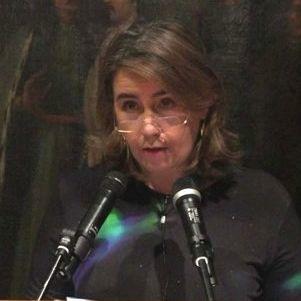Nassia Yakovaki (University of Athens)
Senior Fellow in Research Area 1: "Competing Communities"
March–May, 2019
Nassia Yakovaki's project at EXC 2020 seeks to examine the changes in the conditions, means and media that have impacted the development of public communication and the origins of public life in modern Greece between 1798 and 1820. Against the backdrop of the Cluster's focus on Temporal Communities and Research Area 1's emphasis on understanding what constitutes competing communities, her project primarily focuses on latent social and political developments, the mobility of and connection between people, and their ideas and practices. At the same time, Yakovaki attempts to remove (or relativise) the distinction between an "inside" and an "outside" regarding the Ottoman Empire and the rest of Europe, between the "subjugated" Greeks and the "diaspora". This relativisation of competing communities entails the investigation of a nascent "Greek public" that, while instrumental for the success of social and political change, is nonetheless not territorially determined. The project provides a fresh perspective on the period encompassing the Napoleonic Wars and post-Napoleonic Europe in order to show how those eventful years constitute a distinct historical era which brought forth significant changes in Greece and non-Ottoman Europe. During her fellowship at EXC 2020, Yakovaki aims to establish a coherent narrative of two of the most important decades in modern Greek history.
Nassia Yakovaki is Assistant Professor of Modern History in the Department of Political Science and Public Administration at the University of Athens, where she teaches courses on modern and contemporary European history (including Southeast Europe, the Black Sea region and the Russian Empire). She received her Ph.D. from the History Department of the Aristotle University of Thessaloniki (2001). She is the author of Europe via Greece: A Turning Point in European Self-Consciousness, 17th-18th centuries [in Greek, and in Chinese translation] and she has published widely in collective volumes and academic journals in Greek, English and French.
